From the outset of the combined sewer overflow permits issued in 2015, the New Jersey Department of Environmental Protection (NJDEP) encouraged collaboration between waste water treatment plants and their member municipalities (whose sewage they treat). Of the 25 permits issued, 9 were issued to waste water treatment plants and 16 to municipalities, resulting in 9 regional collaborations. Municipalities and waste treatment plants have been working regionally on water quality monitoring, modeling of the sewer systems and public participation as well as regional alternatives like sewer treatment plant expansion and regional storage tanks.
What does this mean for the final Long Term Control Plans?
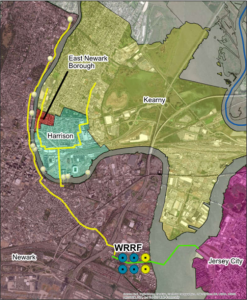
The plans will include regional alternatives that involve upgrades to waste water treatment plants and the sections of the collection system that they own and operate and could serve one or more municipalities. The plans will also include municipal alternatives that involve upgrades within the collection system that municipalities own and operate and on municipal land. Regional and municipal permit holders will submit regional Long Term Control Plans that may include chapters or appendixes that focus on the municipal alternatives.
Who is collaborating on regional plans?
The sewer treatment plants and combined sewer overflow municipalities they serve are working together to develop the regional plans. These include:
Bergen County Utilities Authority (BCMUA)
|
Camden County Municipal Utilities Authority (CCMUA)
|
Joint Meeting of Essex and Union Counties (JMEUC)
|
Middlesex County Utilities Authority (MCUA)
|
North Bergen Municipal Utilities Authority (NBMUA) – Woodcliff Sewage Treatment Plant
|
| North Hudson Sewerage Authority (NHSA)* – Adams Street Wastewater Treatment Plant and River Road Wastewater Treatment Plant. |
|
Passaic Valley Sewerage Commission (PVSC)
|
*NHSA owns the pipes and the treatment plant. The following cities are served by NHSA but are not permit holders: Hoboken, Union City, West New York, and Weehawken.
What are the regional alternatives?
The regional alternatives are infrastructure upgrades that the sewer treatment plants can make such as increasing the amount of flow to the plants and the plants’ treatment capacity. Bypass of secondary treatment, also known as wet weather blending, effluent blending, or high-rate treatment is being considered by most of the wastewater treatment plants to increase the capacity of the plant. Learn more about this option in this fact sheet developed by the Clean Waterways, Healthy Neighborhoods Initiative organized by the Passaic Valley Sewerage Commission. Improvements to sewer infrastructure that the plants operate and own are also being considered like increasing the size of the pipes, pumping capacity and regulator modifications to increase the flow to the plants. Regional storage tanks and tunnels are also under consideration by the Bergen County Utilities Authority, the Passaic Valley Sewerage Commission and North Hudson Sewerage Authority to store flow during wet weather and pump it back to the treatment plants during dry weather.
North Hudson Sewerage Authority is the only sewer treatment plant that owns the plant, sewer system, and outfalls. Their plan includes sewer treatment plant upgrades and more municipal focused infrastructure upgrades like green infrastructure, and inflow and infiltration upgrades. Find a full list of the regional alternatives being considered from the Development and Evaluation of Alternatives Reports at the end of this post.
The municipal alternatives that are being considered by municipal permit holders include: storage tanks, sewer separation, inflow and infiltration reduction, treatment of CSO discharge, green infrastructure, water conservation, and sewer system optimization. Regional and municipal alternatives will be combined in the Long Term Control Plans so that both municipal and regional permit holders meet requirements to reduce combined sewer overflows and water quality standards.
Who will be held responsible?
Although the municipalities and sewer treatment plants have been working collaboratively for the last five years, each permit holder will be issued their own permits and will be held individually responsible for meeting permit requirements.
Both regional and municipal alternatives to combined sewer overflows will have community impacts and benefits. It is important for residents to review the Development and Evaluation of Alternatives Reports (DEARs) and look at both the regional reports and the municipal reports or appendixes that include municipal alternatives to understand the options that are being considered. A list of regional alternatives is also at the end of this post and the Sewage-Free Streets and Rivers campaign developed fact sheets for nine of the reports. Permit holders are now in the process of selecting infrastructure upgrades from the alternatives they evaluated in the DEARs and will decide what they will include in their Long Term Control Plans. Ask your CSO contacts for more information on the options they are considering and to release their draft Long Term Control Plans to the public for comments before they submit their plans to the NJDEP.
List of regional and municipal alternatives from the DEARs:
Bergen County Utilities Authority, Hackensack, Ridgefield Park, and Fort Lee:
- Expansion of water pollution control facility capacity
- Wet weather blending
- Regional storage
- Utilize inline storage in interceptor for CSO
- Municipal alternatives include: green infrastructure, sewer separation, treatment of CSO discharge, storage tanks and tunnels.
Camden County Municipal Utilities Authority (CCMUA), Camden and Gloucester City:
- Expand wet weather treatment capacity of waste water treatment plant to 220 million gallons daily (MGD) via effluent blending
- An additional 130 MGD wet weather capacity at or near the CCMUA wastewater treatment plant through a dedicated process train using ballasted flocculation or other high rate treatment process to address Cooper River outfall
- Municipal alternatives include: restoring the City of Camden’s collection system, green infrastructure, satellite treatment, storage, and sewer system optimization.
Joint Meeting of Essex and Union Counties (JMEUC) and the City of Elizabeth
- Satellite treatment facilities (Actiflo with PAA)
- Effluent blending at wet weather treatment plant
- Municipal alternatives include: sewer separation, storage tanks, tunnel storage, green infrastructure, and inflow and infiltration reduction.
Middlesex County Utilities Authority (MCUA) and Perth Amboy
- High-rate treatment with disinfection
- Municipal alternatives include: storage tanks, storage tunnels, pump station expansion, treatment of CSO discharge, and green infrastructure.
North Bergen Municipal Utilities Authority (NBMUA) – Woodcliff Sewage Treatment Plant and Guttenberg
- Woodcliff Sewage Treatment Plant upgrade and expansion, and wet weather blending to allow for wet weather flows of 10 MGD
- Municipal alternatives include: inflow and infiltration reduction, sewer separation and green infrastructure.
Passaic Valley Sewerage Commission (PVSC), Bayonne, East Newark, Harrison, Jersey City Municipal Utilities Authority (JCMUA), Kearny, Newark, North Bergen Municipal Utilities Authority (NBMUA) and Paterson
- Regional storage tanks and tunnels
- Secondary bypass treatment
- Plant expansion
- Newark regulator modifications
- Hudson County force main
- Parallel interceptor (Newark, Kearny, Harrison, East Newark)
- Jersey City pipe
- Municipal alternatives include: treatment of CSO discharge, storage tanks, sewer separation, green infrastructure, sewer system optimization, and inflow and infiltration reduction.
North Hudson Sewerage Authority (NHSA) – Adams Street Wastewater Treatment Plant
- Storage tank
- Satellite treatment
- Storage tunnel
- Increase pump station capacity
- Disinfection (includes in-water chlorine contact tank)
- Green infrastructure
- Wastewater treatment plant improvements
- Inflow and infiltration rehabilitation
North Hudson Sewerage Authority (NHSA) – River Road Wastewater Treatment Plant
- Storage tank
- Regulator modifications
- CSO treatment
- Storage tunnel
- Green infrastructure
- Inflow and infiltration rehabilitation
- Wastewater treatment plant improvements



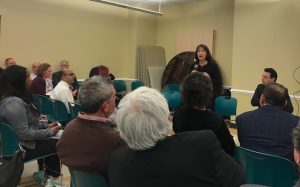

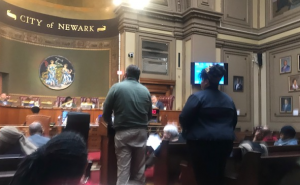
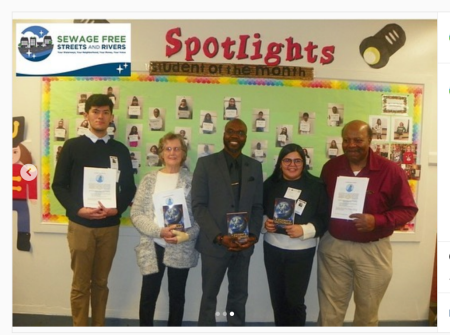

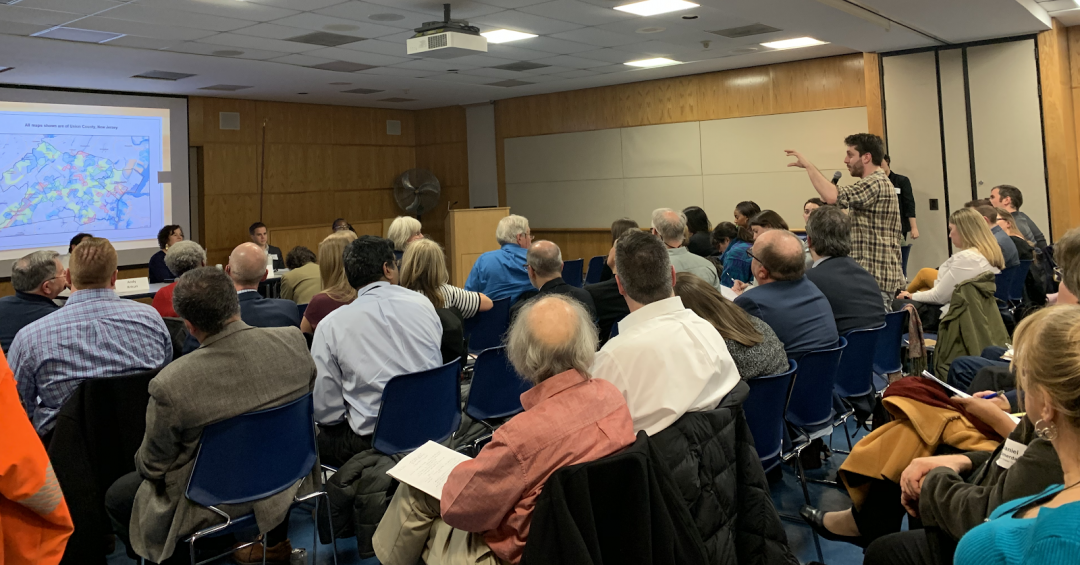
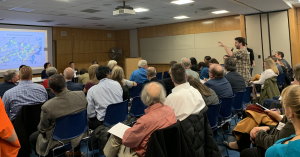
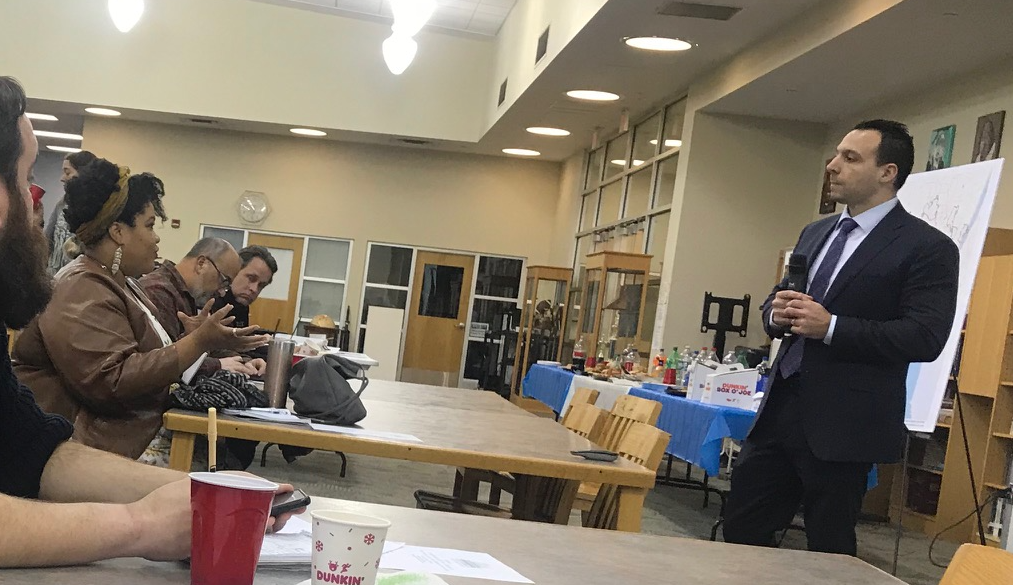
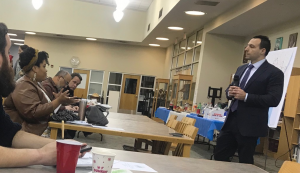 “
“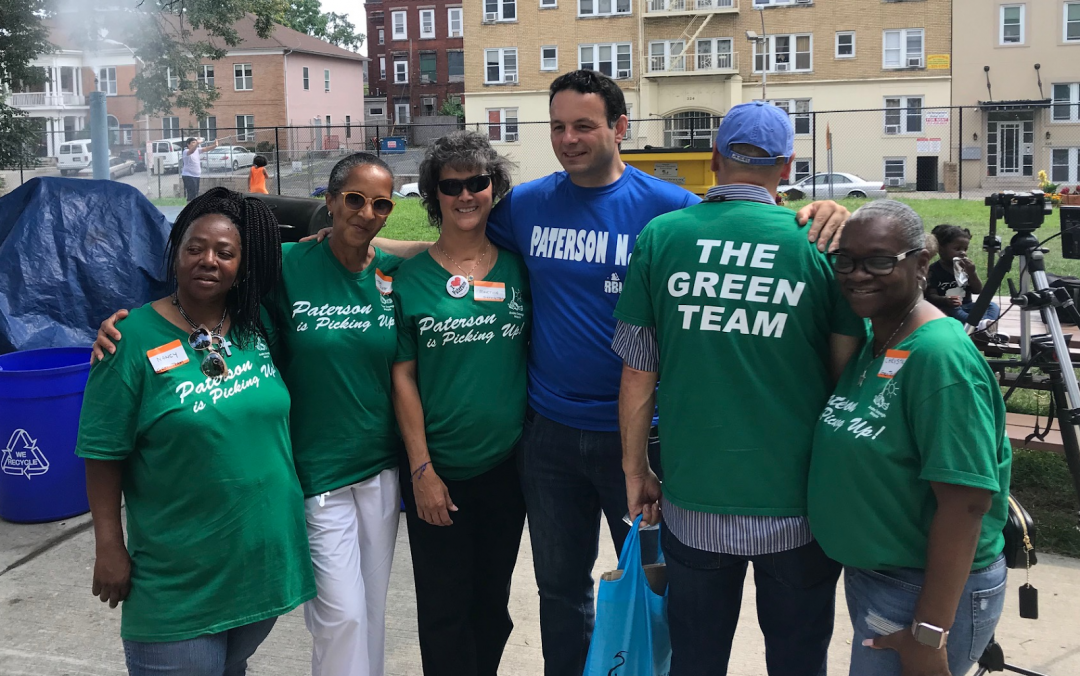
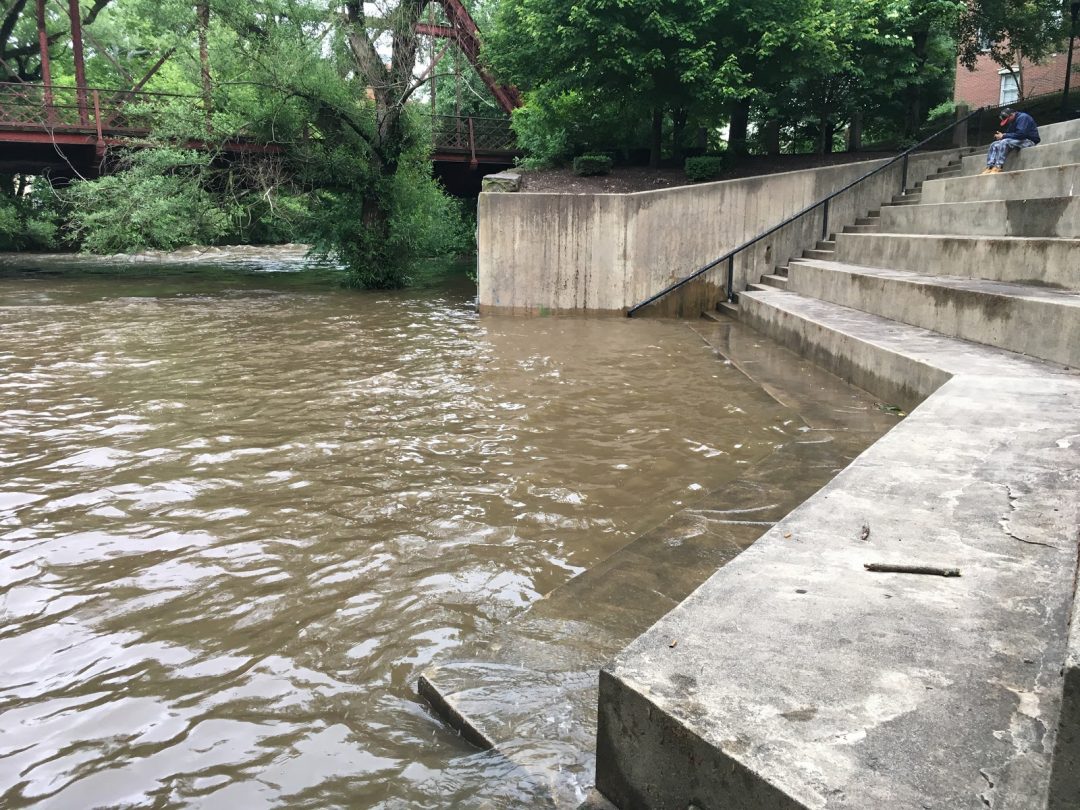

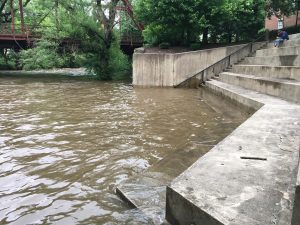 Learn how municipalities can factor climate change in their combined sewer overflow (CSO) long term control plans at a
Learn how municipalities can factor climate change in their combined sewer overflow (CSO) long term control plans at a 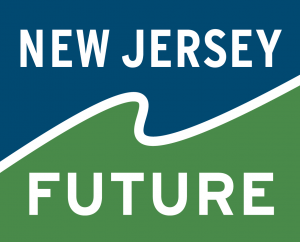

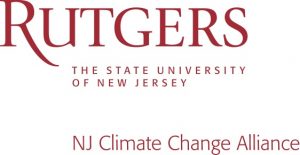

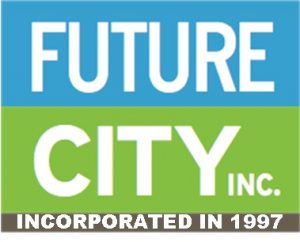
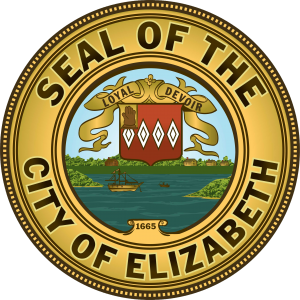
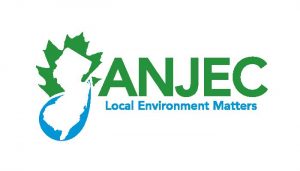
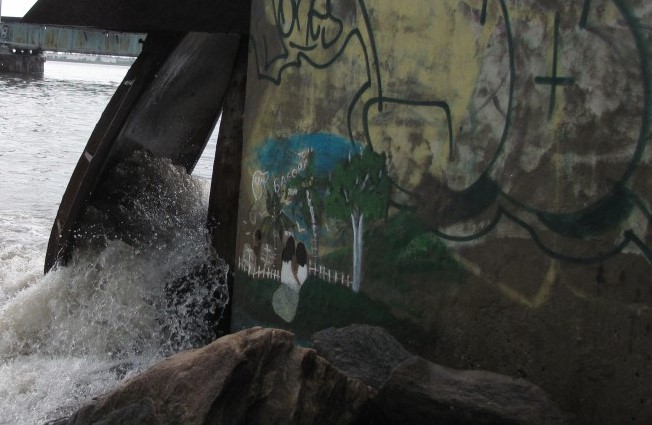
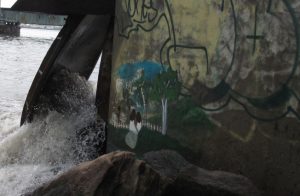 Residents who live in these communities can read DEP’s comments to gain insight into the options being considered for their communities and if issues they care about, like climate change and flooding, were part of the review. Residents should submit preferences or concerns to their
Residents who live in these communities can read DEP’s comments to gain insight into the options being considered for their communities and if issues they care about, like climate change and flooding, were part of the review. Residents should submit preferences or concerns to their 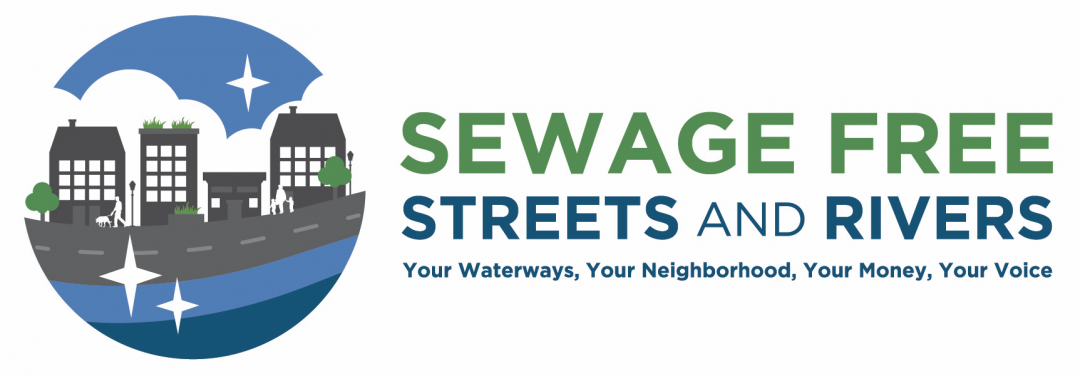
 Twenty-five New Jersey municipalities and utilities are developing plans to upgrade their century-old combined sewer systems. These upgrades will take decades to build and should serve communities for another hundred years. Thus far, the development of these plans has not required climate change to be taken into consideration.
Twenty-five New Jersey municipalities and utilities are developing plans to upgrade their century-old combined sewer systems. These upgrades will take decades to build and should serve communities for another hundred years. Thus far, the development of these plans has not required climate change to be taken into consideration.